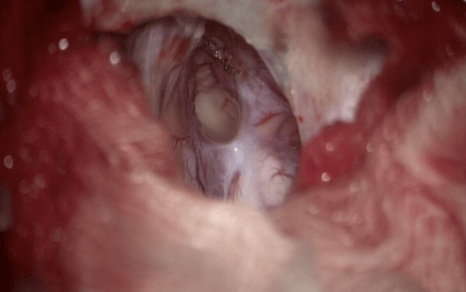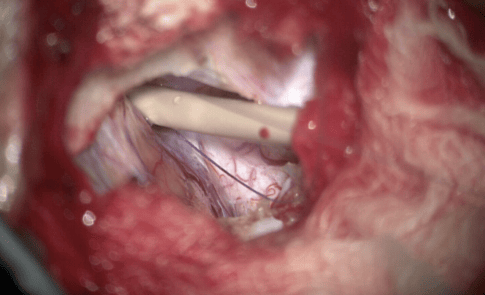HYDROCEPHALUS
Hydrocephalus is the build-up of fluid in the cavities (ventricles) deep within the brain. The excess fluid increases the size of the ventricles and puts pressure on the brain.
Hydrocephalus can happen at any age, but it occurs more frequently among infants and adults 60 and over.
Congenital: In infants, it can cause an unusually large head, a rapid increase in the size of the head or a bulging or tense soft spot (fontanel) on the top of the head.
Congenital or Tumours: In older children, it can cause Headache, Blurred or double vision, Abnormal eye movements, Abnormal enlargement of a toddler's head, Sleepiness or sluggishness, Nausea or vomiting or Unstable balance.
Normal pressure hydrocephalus: In older age, it can cause Loss of bladder control or a frequent urge to urinate, Memory loss, Progressive loss of other thinking or reasoning skills, Difficulty walking, often described as a shuffling gait.
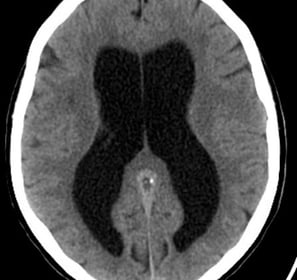

Dilated lateral ventriculus (Hydrocephalus)
1. 4TH VENTRICULAR TUMOUR
4TH VENTRICULAR TUMOUR causing hydrocephalus, treated surgically by ventriculo-peritoneal (V-P shunt) or by 3rd ventriculostomy
Tumour in 4th ventricle
Complete tumour removed
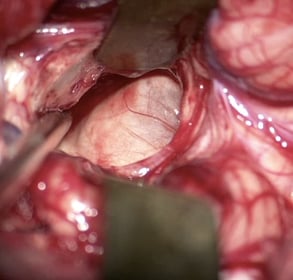



2.NORMAL PRESSURE HYDROCEPHALUS (NPH)
Normal pressure hydrocephalus is called "normal pressure" because despite the excess fluid, CSF pressure as measured during a spinal tap is often normal. As brain ventricles enlarge with the excess CSF, they can disrupt and damage nearby brain tissue, leading to difficulty walking, problems with thinking and reasoning, and loss of bladder control.
Normal pressure hydrocephalus can sometimes be treated with surgical insertion of a shunt, a long, thin tube that drains excess CSF from the brain to the abdomen. Surgery is most likely to help correct difficulties walking, but thinking changes and loss of bladder control are less likely to improve. Shunting doesn’t help everyone with normal pressure hydrocephalus, and there’s uncertainty about how best to identify those most likely to benefit.
As shown below, MRI FLOWMETRY is one of the methods to diagnose NPH.
MRI CSF flowmetry using phase contrast method is an advanced imaging parameter which can non-invasively and reliably detect NPH. Also, it can be used to follow the response to treatment following shunting and can act as a prognostic marker.
MRI flowmetry
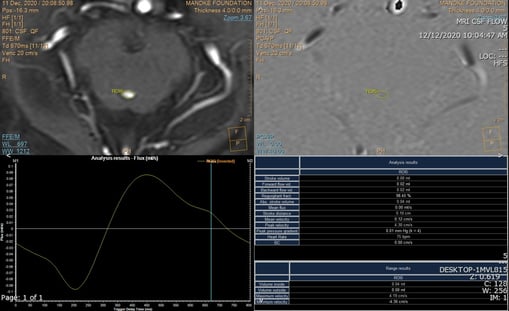

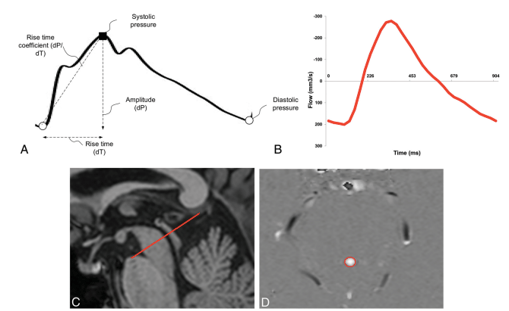

3.AQUEDUCT STENOSIS- ENDOSCOPIC 3RD VENTRICULOSTOMY (ETV):
Endoscopic third ventriculostomy is a surgical procedure for treatment of hydrocephalus in which an opening is created in the floor of the third ventricle using an endoscope placed within the ventricular system through a burr hole. Endoscopic third ventriculostomy is an alternative surgical procedure that creates a bypass for the cerebrospinal fluid in the head that eliminates the need for a shunt.
Endoscopic third ventriculostomy (ETV) is considered as a treatment of choice for obstructive hydrocephalus.


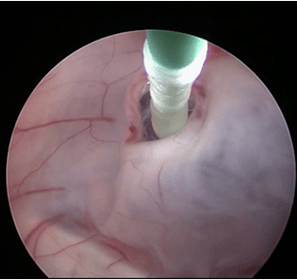

4.ENDOSCOPIC EXCISON OF 3RD VENTRICULAR COLLOID CYST
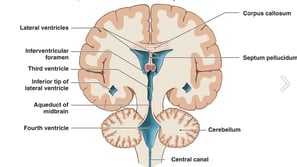

Normal anatomy of the ventricles
Colloid cyst in the 3rd ventricle
Choroid Plexus
After total excision




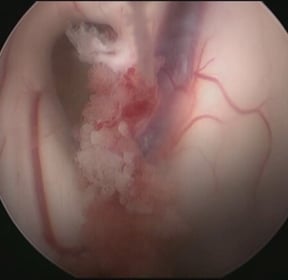

5.TRAPPED 4TH VENTRICLE DUE TO ADHESIONS
Trapped fourth ventricle (TFV) also known as isolated fourth ventricle (IFV) is a rare clinical-radiologic entity with only a few cases reported in the literature. Most are detected incidentally without significant neurological deficits. It occurs when there is obstruction of both the aqueduct of Sylvius and exit foramina i.e. Magendie and Luschka or basal cisterns of the fourth ventricles. This will lead to progressive accumulation of cerebrospinal fluid (CSF), which initially produces a mass effect on the cerebellum behind similar to the posterior fossa space occupying the lesion and subsequently the brain stem anteriorly.
Fibrous adhesive sheet
After completion of adhesive sheet-Aqueduct of Sylvius-4th Ventricle
Internal Shunt




